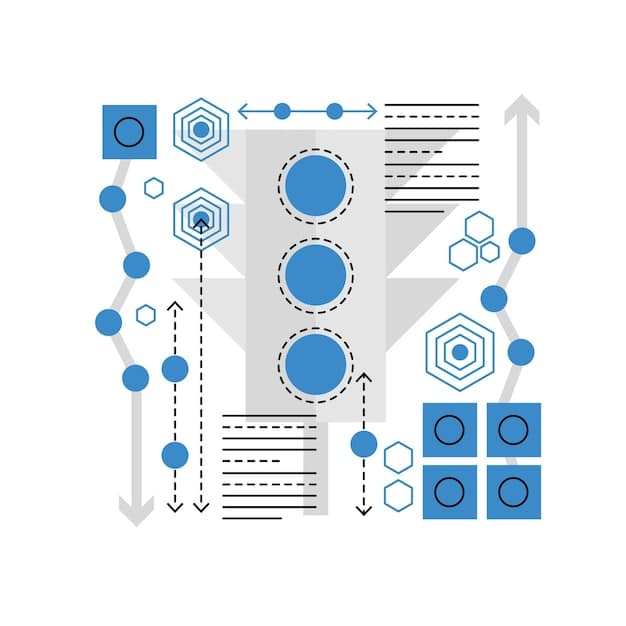Independent Labels: Mastering Metadata for Music Discoverability

Independent labels can significantly boost their music’s discoverability by strategically implementing metadata to enhance search rankings and connect with a broader audience.
For independent labels, discoverability isn’t just a buzzword; it’s the key to connecting with new listeners and growing their artists’ careers. Understanding the importance of metadata is crucial, and this article helps you navigate the world of music metadata to maximize your label’s visibility.
Understanding the Core of Music Metadata
Music metadata is the information embedded within a music file that describes various aspects of the track. It’s more than just the song title and artist name; it includes a wealth of information that helps identify, categorize, and manage music effectively.
Key Metadata Components
Understanding the specific components will allow you to fine-tune your content. Let’s explore some of the most crucial players in metadata.
- Title: The official name of the track is essential to assist in navigation.
- Artist: Knowing the artist(s) involved is important to categorize creators.
- Album: The album’s name helps contextualize the song, and also groups similar tracks.
- Genre: A specific genre allows the song to be found easier, based on particular preferences.
Accurate and complete metadata ensures that your music is correctly identified and categorized across all platforms.

Why Metadata Matters for Independent Labels
Metadata plays a pivotal role in ensuring that your music can be easily discovered, enjoyed, and monetized. For independent labels, the impact of well-managed metadata can be especially profound.
Increased Visibility
Good metadata increases the chance of your music being found by new listeners through search and recommendations, resulting in a noticeable increase in streams.
Accurate Royalty Payments
Complete and accurate information can help ensure that artists are paid fairly for their work, building trust between the listener and the artist.
Enhanced Music Library Management
Well-organized metadata makes it easier to manage and search songs for specific tracks.
By recognizing and focusing on the importance of metadata, you can avoid common pitfalls, and maximize the benefits that come with consistent and accurate record-keeping.
Optimizing Metadata for Discoverability
Optimizing metadata involves more than just filling in the required fields; it’s about using metadata strategically to enhance your music’s discoverability. The optimized version of metadata will greatly assist in navigating platforms like YouTube and Spotify.
Let’s explore the process, and look at what specific measures you can put into action.
Keyword Research
Identify relevant keywords that describe your music and incorporate them into your metadata. Consider factors like genre, mood, and lyrical themes.
Consistent Tagging
Maintain consistency in your tagging practices across all platforms. Standardize your naming conventions and vocabulary to avoid discrepancies.
Platform-Specific Guidelines
Understand the metadata guidelines of each platform and optimize your metadata accordingly. Each platform may have unique requirements and best practices.
Optimizing metadata for discoverability is an ongoing process that requires attention to detail and a proactive approach.
Best Practices for Metadata Management
Effective metadata management requires a systematic approach that ensures accuracy, consistency, and completeness. By implementing best practices, independent labels can streamline their metadata workflows and maximize the impact of their efforts.
- Centralized Database: Create a central database or spreadsheet to store and manage your metadata. This makes it easier to maintain consistency and track your metadata across multiple platforms.
- Quality Control: Implement quality control checks to ensure that your metadata is accurate and up to date. Review your metadata regularly and correct any errors or inconsistencies.
- Collaboration: Collaborate with artists, producers, and other stakeholders to gather accurate and comprehensive metadata. Share your metadata guidelines and provide training to ensure that everyone follows best practices.
To follow the proper management and implementation, it is useful to have a clear plan in place.

The Role of Metadata in Streaming Platforms
Streaming platforms rely heavily on metadata to categorize, recommend, and monetize music. Understanding how metadata impacts your music’s performance on these platforms is crucial for success.
Algorithmic Recommendations
Streaming platforms use metadata to power their recommendation algorithms and suggest music to listeners based on their preferences and listening history.
Playlists and Radio
Metadata plays a role in deciding which songs are included in playlists and radio stations. Curators often use metadata to identify music that fits their criteria.
Monetization and Royalty Payments
Accurate metadata is essential for proper monetization and royalty payments. Streaming platforms use metadata to identify rights holders and distribute royalties to the appropriate parties.
To optimize an independent label’s discoverability, it is important to understand the influence of metadata on these platforms.
Future Trends in Music Metadata
As music technology continues to evolve, metadata management will become even more critical for independent labels. Staying ahead of the curve and embracing emerging trends can help you maximize your music’s discoverability and success.
AI and Machine Learning
AI and machine learning are being used to automate and improve metadata management. These technologies can analyze music and automatically generate metadata tags, saving time and improving accuracy.
Blockchain Technology
Blockchain technology is being used to create decentralized metadata databases that are more secure and transparent. This ensures that rights holders are properly identified and compensated.
Semantic Web Technologies
Semantic web technologies are being used to create more interconnected and intelligent metadata systems. This can help music platforms better understand the relationships between different pieces of music and provide more relevant recommendations.
The potential of new technology can help independent labels succeed more efficiently. By understanding how the metadata ecosystem will evolve, one can be more effective when navigating the industry.
| Key Point | Brief Description |
|---|---|
| 🎶 Core Metadata | Basic info like title, artist, and album ensures proper identification. |
| 📈 Visibility | Optimized metadata boosts discoverability on streaming platforms. |
| ✅ Best Practices | Centralized databases and quality control are essential. |
| 🤖 Future Trends | AI and blockchain will transform metadata management. |
FAQ
▼
Metadata is descriptive info embedded in a music file. This includes the title, artist, album, genre, and other details to classify and identify the track.
▼
Metadata allows platforms to categorize your music, improving search visibility. Enhanced discoverability results in increased listener engagement and more streams.
▼
Yes, it can. Inaccurate metadata delays payments or misdirects them because streaming services rely on metadata to allocate royalties accurately.
▼
Focus on accuracy, consistency across platforms, and updates. It is important to use proper terminology while following the guidelines for each streaming platform.
▼
Keep an eye on AI-driven tagging, blockchain for secure rights management, and semantic web technologies for linked data. These tech developments can greatly affect the flow.





